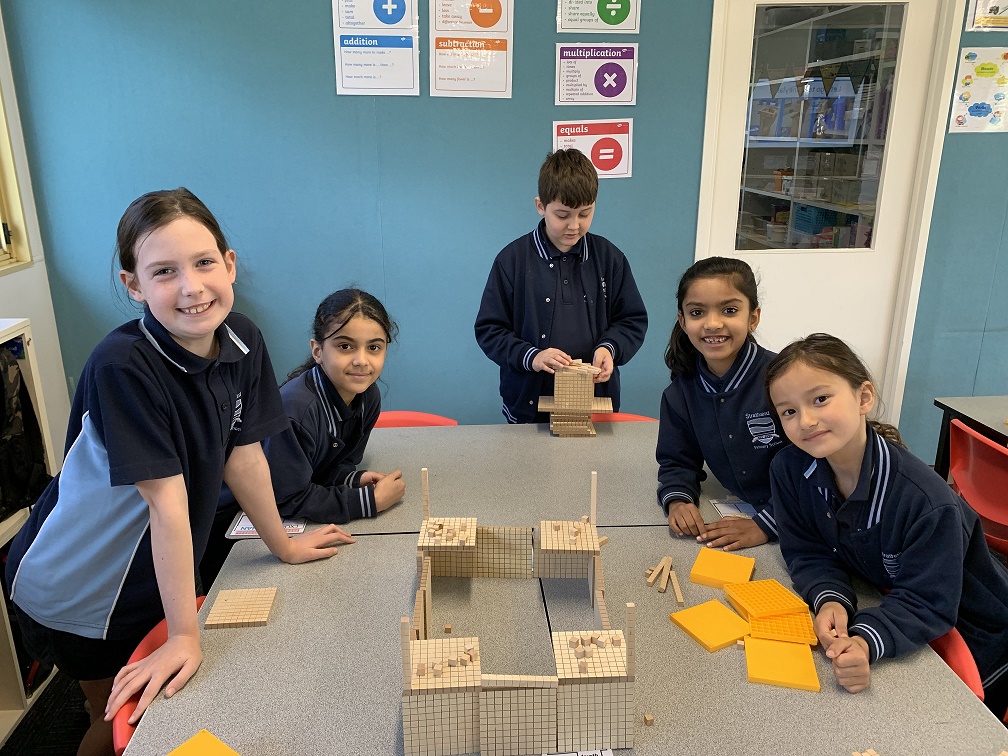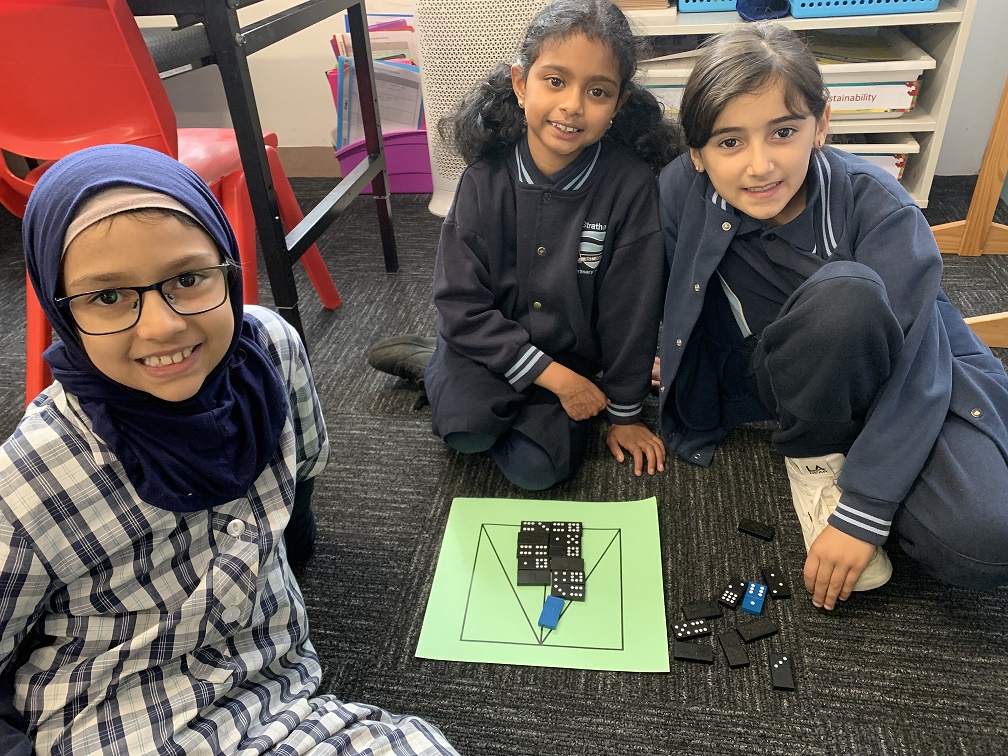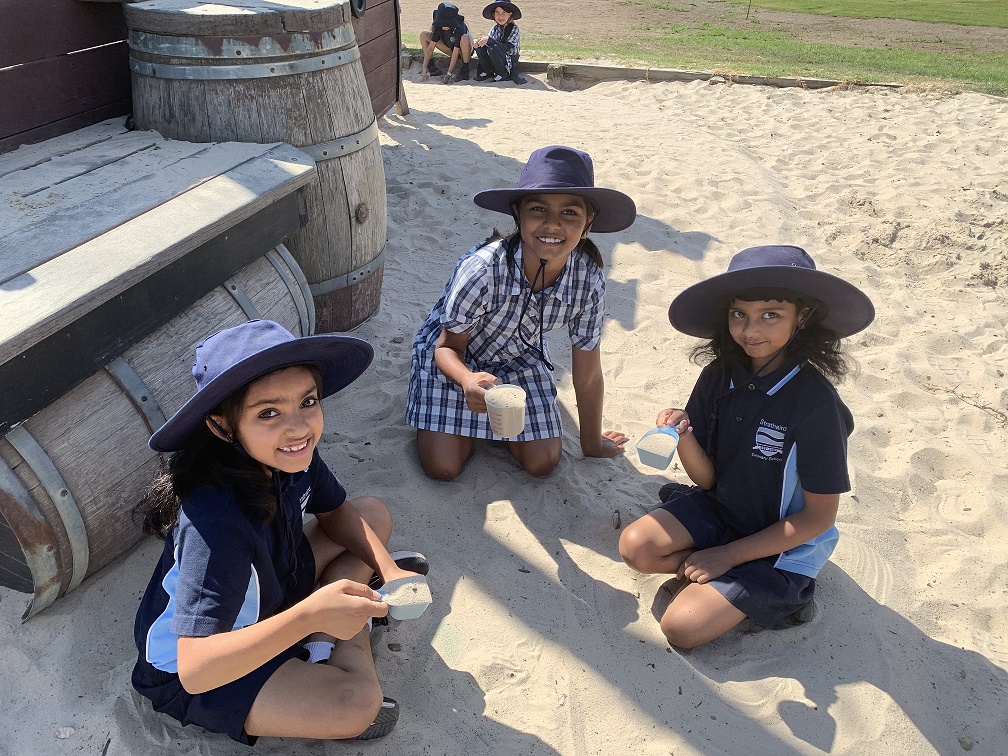Grade 3
Welcome to Grade 3 at Strathaird Primary School. It is a year of transition and growth, and it is exciting to watch students continue to develop their independence as individuals.
Literacy
During Reading, the focus in Grade 3 is on students developing skills to improve their understanding. There is a strong emphasis on providing evidence and supporting their answers. Students develop their understandings of genre and are encouraged to read a variety of texts within the classroom. Students develop their strategies with summarising, visualising, making connections and comparing and contrasting.
We cover a variety of text types inWriting, focussing on a variety of different genres. Some of the text types we cover include, Narratives, Expositions (Persuasive), Procedures, Informative Reports, Descriptions, Recounts and Explanations. They further develop their writing by adding more details by using descriptive language, paragraphing and including a variety of higher-level punctuation.
Numeracy
Numeracy continues to have a hands-on approach in Grade 3, but delves deeper into their previous knowledge. Throughout the year we focus on the Big Understandings in Maths to build on their knowledge from the previous year. Students engage in a variety of hands-on experiences to develop and expand their understandings.
Problem solving, collaboration and developing persistence when working together with a peer or a group is a key area of teaching and learning within Grade 3. We utilise Number Talks in the classroom for students to share and verbalise the different strategies they are using when mentally solving problems.
They will learn and develop their understanding of strategies to support their solving of multiplication tables, with a focus on the 2s, 4s, 3s, 5s and 10s.
Inquiry
In Grade 3 students will investigate the following topics:
What does it mean to be healthy?
This Inquiry is designed to help students understand some of the components necessary for students to be healthy and have a healthy body. This will empower students to make healthy decisions in their daily life now and for their bodies as adults.
What are the unique places that make up the environment in Australia?
This Inquiry is designed to develop students’ understandings of the science of Geography. They will identify and describe the characteristics of places in different locations including the states and territories of Australia. Students will discover the different natural environments (deserts, rainforests, grasslands, etc) of Australia as well as the similarities and differences between the climates of these environments.
Students will develop understandings of the unique places across Australia and explore their features, and how they have changed over time. They will compare and identify similarities, differences and features of these landscapes beyond Australia. Students will investigate the connection that Indigenous Australians have to Country and Place and Australian landscapes.
Students will collect and record geographical data and information from various sources and represent this data by constructing tables and simple graphs and maps. They will learn to interpret maps and other geographical data and information using geographical terminology
How do children live in different places around the world?
This Inquiry is designed to develop students’ understandings of intercultural practices and diversity across the world. Students will explore children’s lives around the world, sharing similarities and differences, shaped largely by cultural practices and traditions. They will learn how these cultural factors influence children’s daily activities, responsibilities, and overall experiences. Students will discover that some children around the world need to contribute more to their families based on specific needs.
Students will gain an understanding of how children’s lives vary in different parts of the world. They will investigate how other children are faced with challenges and experiences and this will help them appreciate their own standard of living, fostering empathy and broader perspectives.
How do machines work?
Students develop understandings and knowledge of simple machines including the lever, wheel and axle, pulley, inclined plane, wedge, and screw. Throughout the unit students will work as scientists, designers, and engineers to investigate and understand the operation of these simple machines and explore their uses in our everyday life. Students will use the scientific methods of observation, reasoning, prediction, and critical thinking to design and create their own simple machine.
Throughout the year, students participate in a range of incursions and excursions to further enhance and support their learning.
NAPLAN
At the beginning of March, Grade 3 students participate in NAPLAN, a national assessment program in Reading, Writing, Language Conventions and Numeracy. Parents and schools receive the results later in the year, which are used to inform further learning.
Homework
In Grade 3, students are encouraged to read nightly. Students record their nightly reading in their school diary. Weekly homework consists of reviewing skills, strategies and concepts learnt throughout the week, with a particular focus on Maths, Word Study and Inquiry.



